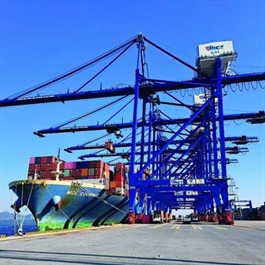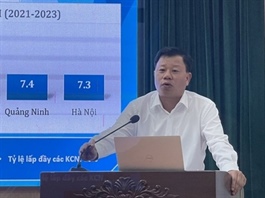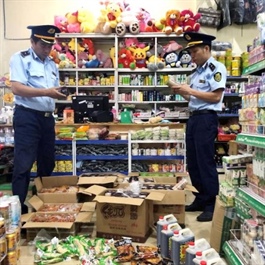Businesses pivot to neighbouring markets due to uncertainties elsewhere
Businesses pivot to neighbouring markets due to uncertainties elsewhere
Some Vietnamese businesses have shifted their focus to penetrate neighbouring markets due to logistics convenience and concerns about shipping tensions elsewhere.

Khánh Hòa Salanganes Nest Company's production line of export products meeting Halal for Muslim countries and food safety standards, including Malaysia. — VNA/VNS Photo Vũ Sinh |
Company exporting to US and European markets have been impacted by tensions in the Red Sea, which have forced shipping lines to divert their routes to ensure safety.
With many national businesses having sufficient export orders until the end of the third quarter, they are negotiating additional orders for the fourth quarter and looking to other markets.
Ameii Việt Nam Joint Stock Company's traditional markets include the EU, the United States, China and Northeast Asia countries. However, the company has recently shifted to seek for orders from other potential markets, aiming for a 50 per cent increase in revenues over 2024.
Meanwhile, Phạm Quang Anh, the CEO of Dony Textile Company said that it was now a low season in terms of traditional markets.
Therefore, the company considered expanding into the Cambodia market for easy delivery, a new market for them, but potentially with many orders.
Quang Anh said the company's sales were expected to increase by 15 per cent this year.
Dương Thị Thủy, business director, Hữu Nghị Food Company said China was an important export market, contributing 30 per cent of the total revenues of the company.
Therefore, the company's goal in 2024 was to continue to maintain export growth of over 130 per cent and expand to other provinces and cities in China.
Nguyễn Văn Thứ, chairman of GC Food Joint Stock Company, said that since the beginning of the year, exports to main markets had increased by 50 per cent. In addition, his company would expand to neighbouring markets such as China, India, Indonesia and Malaysia.
At present, the company had suspended exports to the Middle East market and shifted to more favourable markets such as China and Japan.
According to Đặng Phúc Nguyên, general secretary of Việt Nam Vegetable Association China, Thailand, South Korea and Japan are Việt Nam's major vegetable export markets and account for 98 per cent of their total turnover.
These markets have many advantages for Vietnamese vegetables such as being close, so being convenient in terms of logistics, meaning faster shipping times and lower and safer transportation costs.
According to the Trade Office of Việt Nam in Malaysia, Việtnamese companies still have room to improve export growth and the country has a high purchasing power, a diversified demand, along with a similar consumer culture to Việt Nam.
Moreover, Việt Nam and Malaysia are trying to target a bilateral trade turnover of $25 billion by 2030, so there are opportunities to be seized.
To access further into the Malaysian market, Vietnamese export products need to meet Malaysia's quality, food safety and hygiene standards, especially the standards of Halal certification.
Enterprises need to strengthen trade promotion activities to bring products to Malaysia via specialised fairs in this market.
The trade office has also noted that domestic export enterprises should update more market information of Malaysia in particular and the Muslim countries in general. Then, they plan market expansion to those countries by finding local investment and business partners.
According to trade experts, the neighbouring markets are key export targets which can reduce dependence on traditional markets and are there to be exploited.























